Member of the Ministry of Politics, Prime Minister Pham Minh Chinh inspects the construction site of Viet Duc Hospital No. 2 in Ha Nam_Photo: hanamtv.vn
Ho Chi Minh's thoughts on practicing thrift and preventing waste
During his lifetime, President Ho Chi Minh paid great attention to the issue of practicing thrift and combating waste. Many times, in his articles and speeches, he reminded cadres, party members and people to pay close attention to preventing and combating extravagance and waste, and to use money, time and effort reasonably and effectively. In President Ho Chi Minh's thought, diligence and thrift are the qualities of a revolutionary. As a revolutionary, one must regularly practice and set an example of diligence and thrift, and prevent and combat waste. In the first session of the Government Council of the Democratic Republic of Vietnam (now the Socialist Republic of Vietnam), President Ho Chi Minh stated: "I propose to launch a campaignto re-educate the people's spirit by practicing: DILIGENCE, THRIFT, INTEGRITY, RIGHTEOUSNESS" (1) .
President Ho Chi Minh pointed out that saving is not extravagant, not wasteful, not haphazard. He also did not agree with the extreme understanding and practice of saving. Saving does not mean being stingy, stingy, not “seeing money as the size of a pot”, “not doing what should be done, not spending what should be spent”. He clearly stated the importance of saving. Saving time, human resources, and money, focusing resources on production will promote production development, promote social development. If everyone saves together, every household saves together, wealth will be accumulated for the cause of nation building, contributing to the victory of the revolutionary cause led by the Party.
The opposite of thrift is waste. President Ho Chi Minh analyzed the harmful effects of waste. He pointed out, “Embezzlement is harmful; but waste is sometimes even more harmful: It is more harmful than embezzlement because waste is very common...” (2) . Because embezzlement may only be concentrated in a few people, but waste is very common, everyone is at risk of contracting this disease, public waste and private waste both have the ability to reduce social resources. President Ho Chi Minh pointed out the origin of waste: “Because of individualism , we are afraid of hardships and difficulties, falling into embezzlement, corruption, waste, and luxury” (3) . “Waste has many causes. Either because of careless planning. Or because of careless calculations while implementing the plan. Or because of formalism, luxury, and ostentation. Or because of a lack of spirit of protecting public property. In short, it is because of a lack of sense of responsibility, a lack of awareness of valuing the resources and human resources of the State and the people” (4) .
President Ho Chi Minh reminded cadres: “We must cherish public property: All the food, clothing, and use of you are the sweat and tears of our compatriots. We must save, preserve, and not waste” (5) . He believed that waste is an enemy that we must confront and resolutely fight to eliminate. “Corruption, waste, and bureaucracy are “ enemies within ”. If soldiers and people strive to fight foreign invaders but forget to fight internal invaders , they have not fulfilled their duty. Therefore, soldiers and people must enthusiastically participate in that movement” (6) .
Not only did he criticize wastefulness, calling on cadres, party members, soldiers and people to actively and enthusiastically practice thrift and fight waste, President Ho Chi Minh himself was a shining example of cultivating revolutionary ethics, practicing diligence, thrift, integrity and uprightness. From meals, clothes to the work of the Party and the country, he was always simple, frugal, and humble; a lifetime of dedication, serving the Fatherland and the people. In his Testament ( 1969 ), he advised: “After I pass away, do not organize a grand funeral, so as not to waste the people's time and money” (7) .
Party guidelines and policies, State policies and laws on practicing thrift and preventing and combating waste
Throughout the process of leading the Vietnamese revolution, our Party has always thoroughly grasped the spirit of practicing thrift and preventing and combating waste. In particular, since the implementation of the renovation process, the Central Executive Committee, the Politburo , and the Secretariat of all terms have issued many directives, resolutions, and conclusions on practicing thrift and preventing and combating waste.
Resolution No. 04-NQ/TW, dated August 21, 2006, of the 3rd Central Conference, Session X, “On strengthening the Party’s leadership in the work of preventing and combating corruption and waste”, stated that corruption and waste still occur seriously in many sectors, at many levels, and in many fields with a wide scope and complex nature, causing negative consequences in many aspects, reducing people’s trust, and being one of the major threats to the survival of our Party and regime; from there, the Resolution emphasized: “Preventing and combating corruption and waste is an extremely important task in the cause of building and defending the Fatherland of our Party, State and people” (8) . The Resolution proposed 10 solutions to prevent and combat corruption and waste.
On May 25, 2012, the 11th Central Executive Committee issued Conclusion No. 21-KL/TW, “On continuing to implement the Resolution of the 3rd Conference of the 10th Central Executive Committee”. The Resolution affirmed the need to continue to seriously and synchronously implement the goals, viewpoints and solutions stated in the Resolution of the 3rd Conference of the 10th Central Executive Committee, focusing on both corruption prevention and control and waste prevention and control, with a spirit of determination, perseverance, continuity, and compliance with the law, promptly overcoming limitations and weaknesses to create clear changes in this work. The Resolution also proposed six tasks and solutions, emphasizing the role and responsibility of Party committees, Party organizations, authorities, heads of agencies, organizations and units, as well as the need to continue to perfect the institutions on socio-economic management to prevent and control corruption and waste.
Based on the actual situation, on December 21, 2012, the Secretariat issued Directive No. 21-CT/TW “On promoting thrift practice and combating waste”, which clearly stated that waste is still serious, causing frustration in society, especially in the context of the country's economy and people's lives still facing many difficulties. The Directive sets out 8 key tasks requiring Party committees, Party organizations, authorities, the Vietnam Fatherland Front and mass organizations to focus on implementing.
On December 25, 2023, the Politburo issued Directive No. 27-CT/TW "On strengthening the Party's leadership in practicing thrift and combating waste". The Directive stated: In addition to the achieved results, awareness of practicing thrift and combating waste is not deep and complete; sometimes and in some places, the organization is not good, the implementation is not strict; some agencies, units, localities, a number of cadres and Party members are not exemplary in practicing thrift and combating waste; waste and loss are still common, some cases are very serious. Policies and laws, especially policies and laws on financial management, credit, public assets, public investment, land, bidding, etc. are not complete and still inadequate. The implementation of conclusions and recommendations of inspection, examination and audit agencies related to this issue is still slow. The work of propagating and mobilizing cadres, civil servants, public employees and people to practice thrift and combat waste has not received due attention (9) . From that reality, Directive No. 27-CT/TW of the Politburo directs Party committees and organizations to seriously implement 5 groups of tasks and solutions and thoroughly disseminate the spirit of the Directive to each Party cell, each cadre and Party member. The document of the 13th National Party Congress clearly states: "The work of preventing and combating corruption and waste... has not had clear changes..., handling corruption and waste is still limited... Corruption and waste... are still serious, complicated... increasingly sophisticated, causing frustration in society" (10) .
Institutionalizing the Party's policy, the Standing Committee of the 10th National Assembly issued the Ordinance on Practicing Thrift and Combating Wastefulness in 1998; the National Assembly passed the Law on Practicing Thrift and Combating Wastefulness in 2005 and 2013. Article 56 of the 2013 Constitution stipulates: "Agencies, organizations and individuals must practice thrift, combat waste, and prevent and combat corruption in socio-economic activities and state management" (11) .
The Prime Minister issued Decision No. 2544/QD-TTg, dated December 30, 2016, "On promulgating the Government's overall program on practicing thrift and combating waste for the period 2016 - 2020" and Decision No. 1845/QD-TTg, dated November 2, 2021, "On promulgating the Government's overall program on practicing thrift and combating waste for the period 2021 - 2025". In these decisions, the Prime Minister requested to identify practicing thrift and combating waste as one of the key and regular tasks of all levels, sectors, localities, enterprises and people, associated with promoting the responsibility of leaders in directing, operating and organizing implementation; ensuring specific assignment and decentralization, clear implementation focal points. Most recently, on December 17, 2024, the Prime Minister issued Decision No. 1579/QD-TTg establishing the Steering Committee for Waste Prevention and Control. The Steering Committee is responsible for assisting the Prime Minister in researching, advising, recommending, and proposing directions and solutions to solve important, inter-sectoral issues related to the implementation of the National Strategy on Waste Prevention and Control, the Government's overall program on practicing thrift, combating waste, and performing other important tasks and solutions in preventing and combating waste of resources; assisting the Prime Minister in directing and coordinating between ministries, ministerial-level agencies, government agencies, and relevant agencies and organizations in solving important, inter-sectoral issues related to the implementation of the National Strategy on Waste Prevention and Control, the Government's overall program on practicing thrift, combating waste, and performing other important tasks and solutions in preventing and combating waste of resources.
Construction of 500 KV line circuit 3 _Photo: Document
Problems and solutions to build, practice thrift, prevent and combat waste
Society is increasingly developing, people's material and spiritual life is increasingly improving significantly, but along with economic development, the significant increase in average income of people, waste also tends to increase in many places, many times. In the past, when talking about waste, we often mentioned and criticized the waste of time, money and effort, but today the manifestations of waste are much more diverse, that is, waste of resources, waste of opportunities, ... Unnecessary spending, rampant shopping or poor financial management, poor asset management, leading to loss of money. Working without a plan, delaying work or working in vain, ineffectively leading to waste of time and effort. Overexploitation of natural resources, energy or raw materials leading to environmental pollution or resource depletion. Not making the most of available abilities, talents or resources for development, leading to wasted opportunities. Whether it is a waste of time, effort, money, resources, opportunities, whether it is a waste of an individual or an organization, it all causes negative consequences.
Waste causes many immediate and long-term harms. Waste not only causes economic damage but also seriously affects society and the environment. Waste causes loss of money, weakens social productivity, weakens the financial potential of individuals, organizations, and even countries. Waste negatively affects social trust. Waste causes public outrage. Waste is one of the factors that increases stratification of living standards and increases inequality in society. In addition, waste also has a negative impact on the living environment. The unreasonable use of resources can lead to resource depletion, destroy ecosystems, and create major consequences for future generations. General Secretary To Lam pointed out the serious consequences of waste: “... causing a decline in human resources, financial resources, reducing production efficiency, increasing the cost burden, depleting resources, and widening the gap between rich and poor. Moreover, waste also reduces people's trust in the Party and the State, creates invisible barriers in socio-economic development, and misses development opportunities for the country” (12) . Thus, waste not only negatively impacts economic development, but also affects all areas of social life. All efforts to build and develop the country will not achieve the expected results if this “internal invader” is not completely resolved.
To effectively overcome waste, it is necessary to build and practice a culture of thrift and prevent and combat waste. This is associated with the effective use of time, labor, capital, assets, natural resources and other resources. A culture of thrift not only contributes to improving the quality of life but also contributes to protecting natural resources, creating positive values and standards for the community.
Building and practicing a culture of thrift and preventing waste is an urgent requirement today. Only when awareness of the importance of practicing thrift and preventing waste permeates the whole society, and all people voluntarily practice thrift and prevent waste, will there be a culture of thrift and preventing waste. In other words, practicing thrift and preventing waste only becomes a culture when it becomes a habit, a way of life, a way of life, a model, a standard of behavior of society.
In the article “ Fighting against waste ”, General Secretary To Lam proposed four solutions to prevent and combat waste, of which the fourth solution is to “build a culture of preventing and combating waste; make the practice of thrift and combating waste become “self-conscious”, “voluntary”, “daily food, water, clothes”. I think this is a very important solution, only when the practice of thrift and combating waste becomes a culture, then there will be a conscious and widespread change in the whole society.
To build and practice a culture of thrift and prevent waste, it is necessary to focus on the following contents:
Firstly, raise awareness and educate cadres, party members, and the whole society, especially the young generation, about the importance of saving and preventing waste.
Agencies, units, enterprises and the whole society need to regularly urge and inspect the practice of thrift and anti-waste. Thrift and anti-waste must become values and standards of office culture, public service culture and corporate culture. Leaders and managers must be role models in practicing thrift and preventing and combating waste. Socio-political organizations also study to make practicing thrift and preventing and combating waste one of the standards of members...
Incorporate the content of building and practicing a culture of thrift and preventing and combating waste into the national education program appropriate to each level of education. Schools, families and society coordinate education to form the habit and awareness of thrift from an early age. Children should be educated about the importance of practicing thrift, not wasting things and spending reasonably. Schools organize extracurricular activities related to thrift and environmental protection so that children gradually form a sense of self-awareness in practicing thrift. In each family, parents and grandparents must also be role models in practicing thrift. Thrift also needs to become a standard of conduct in each family.
Press and media agencies actively promote and spread the culture of thrift and waste prevention throughout society. Strongly criticize wasteful behaviors and manifestations, and promptly commend good people and good deeds in practicing the culture of thrift. Diversify forms of information and propaganda, promote the effectiveness of new media so that reporting on thrift and waste prevention is not only timely and accurate, but also lively and attractive to the public.
Second, build a social environment that encourages a frugal lifestyle.
Values and standards are formed, maintained and reinforced in the social environment. Those values and standards will guide and regulate the behavior of individuals and communities. Living in a social environment that honors the value of thrift, encourages reuse and rational use of resources will be the basis for forming and cultivating habits, forming self-awareness of each person in thinking and acting towards those standard values. A widespread communication campaign in the community about the economical use of resources, the participation of organizations and unions in society will help strengthen this habit. Residential communities, agencies, units and businesses should establish clear rules to encourage their members to practice thrift in the use of time, public assets, resources... Departments, ministries and branches should research to launch emulation movements to practice a culture of thrift, prevent and combat waste associated with their functions and tasks. Organize a widespread campaign throughout society on practicing thrift and preventing waste.
Third, publicize the practical benefits of saving .
Each person will be more likely to voluntarily practice saving when they clearly see the direct benefits of that action. It is necessary to research and quantify the benefits of saving and publicize them. When an agency, unit, or business promotes the practice of saving, what specific benefits will it bring to the organization and its members? Similarly, when each individual practices saving in daily life, what benefits will it bring to that individual and to the community? By publicizing these positive results, people will be motivated to maintain the habit of saving.
Fourth, promote the application of technology to manage and optimize resources for development.
Applying technology can help management agencies determine standards, norms, and regimes that are appropriate to the actual situation. Technology can help individuals and organizations monitor and control the use of time, effort, assets, energy, etc., thereby promptly detecting and preventing waste. In addition, technology also helps increase transparency in the supply chain, minimizing excess or waste in the operation and circulation of goods. Technology not only helps improve the efficiency of resource use for development, but also minimizes waste.
Fifth, perfect the legal system, including the Law on Practicing Thrift and Combating Wastefulness.
The culture of thrift and waste prevention will become more effective when supported by a legal framework. The article “ Fighting waste ” by General Secretary To Lam clearly states that one of the causes of waste is the quality of law making and improvement that does not meet the practical requirements of the renovation process, leading to difficulties, hindering implementation, causing loss and waste of resources. Therefore, it is necessary to continue to improve the legal system, thoroughly overcome the situation of overlapping legal documents, even contradictions, not close to reality, handling measures are not deterrent enough... The Law on Practicing Thrift and Combating Wastefulness needs to be reviewed and revised to ensure it is more comprehensive, clearer, suitable to the actual situation, while ensuring consistency and unity with other laws and codes such as the Law on Public Investment, the Law on State Budget, the Law on Management and Use of Public Assets, the Law on Public Debt Management, the Law on Management and Use of State Capital Invested in Production and Business at Enterprises, the Land Law, the Law on Water Resources, the Law on Minerals, the Law on Auditing, the Law on Construction, the Law on Planning, the Law on Urban Planning, the Law on Vietnam Sea, the Labor Code...
Realizing the profound guiding messages of General Secretary To Lam to unblock and optimize resources in the new era requires all levels, sectors and the whole society to urgently, resolutely and synchronously carry out many tasks, including practicing thrift and preventing and combating waste. When practicing thrift and preventing and combating waste become a culture, a value and a standard, each individual and each organization will have the awareness to share and voluntarily and self-consciously implement it. That is also the process in which we spread and promote the cultural values and strength of the Vietnamese people, contributing to the successful implementation of the goal of rapid and sustainable development of the country./.
--------------
(1) Ho Chi Minh: Complete Works , National Political Publishing House Truth, Hanoi, 2011, vol. 4, p. 7
(2) Ho Chi Minh: Complete Works, op. cit. , vol. 7, p. 345
(3) Ho Chi Minh: Complete Works, op. cit. , vol. 15, p. 547
(4) Ho Chi Minh: Complete Works, op. cit. , vol. 14, p. 141
(5) Ho Chi Minh: Complete Works, op. cit. , vol. 9, p. 221
(6) Ho Chi Minh: Complete Works, op. cit. , vol. 7, pp. 362 - 363
(7) Ho Chi Minh: Complete Works, op. cit. , vol. 15, p. 623
(8) See: Resolution No. 04-NQ/TW, August 21, 2006, 3rd Central Conference, 10th term
(9) Directive No. 27-CT/TW, dated December 25, 2023, of the 13th Politburo
(10) Documents of the 13th National Congress of Delegates , National Political Publishing House Truth, Hanoi, 2021, vol. I, pp. 92, 93
(11) Constitution of the Socialist Republic of Vietnam , National Political Publishing House Truth, Hanoi, 2014, p. 27
(12) Prof. Dr. To Lam: "Fighting waste", Electronic Communist Magazine , October 13, 2024
Source: https://tapchicongsan.org.vn/web/guest/chinh-tri-xay-dung-dang/-/2018/1082002/thuc-hanh-tiet-kiem%2C-phong%2C-chong-lang-phi-trong-ky-nguyen-moi.aspx


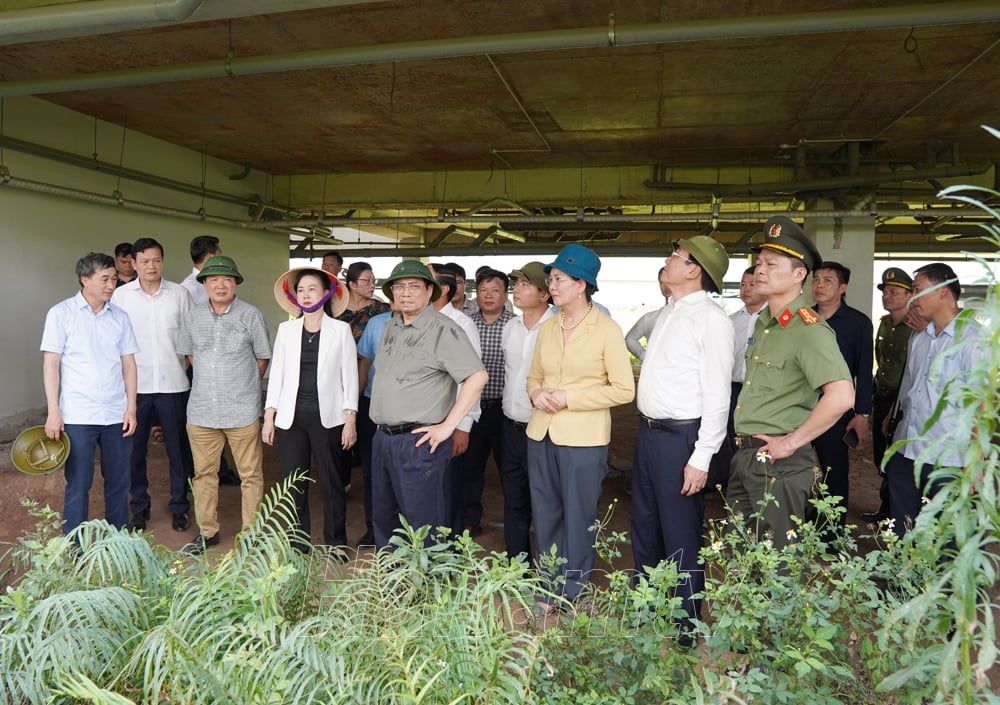


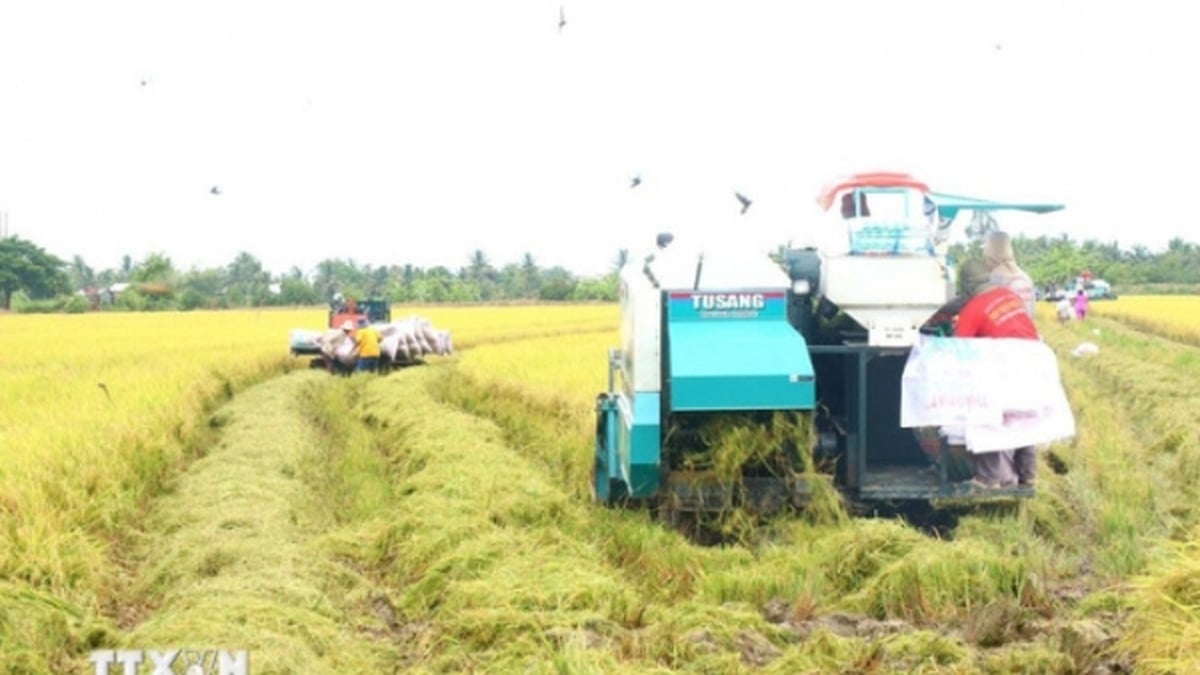
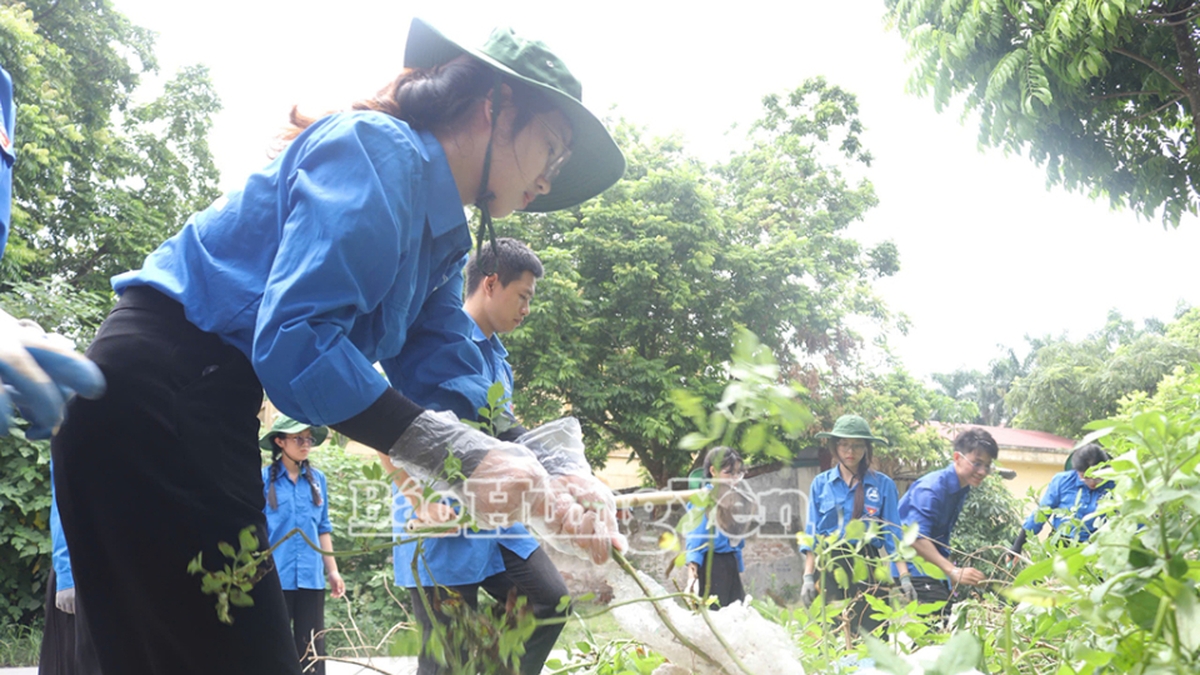
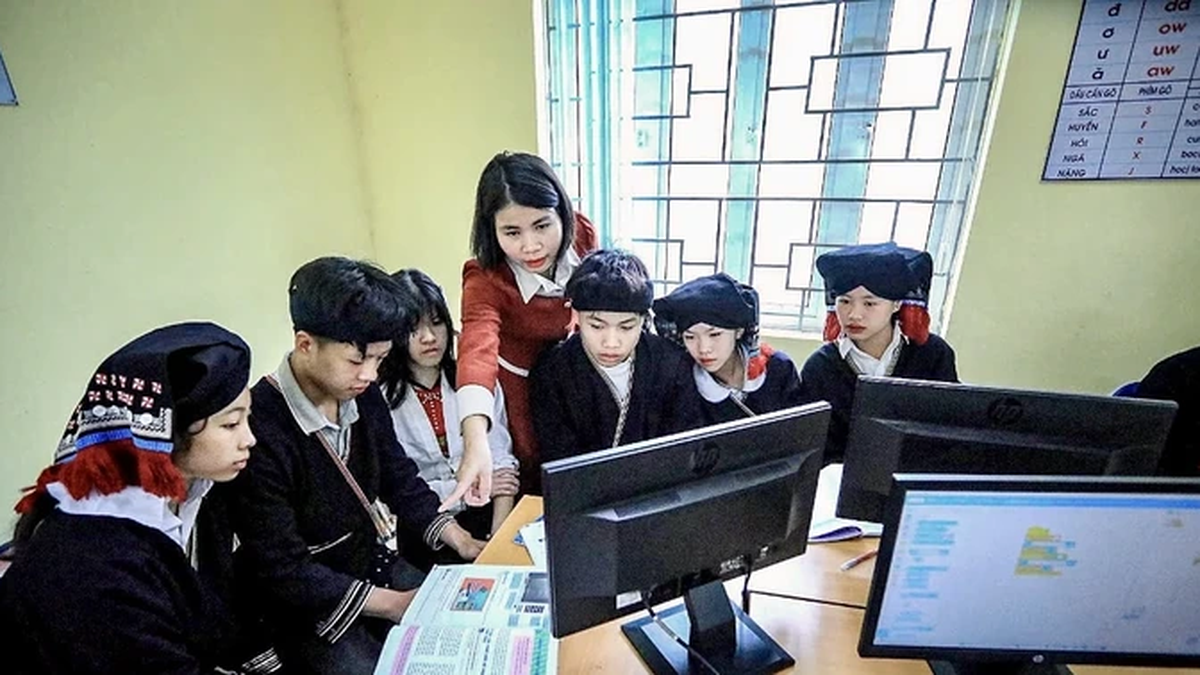
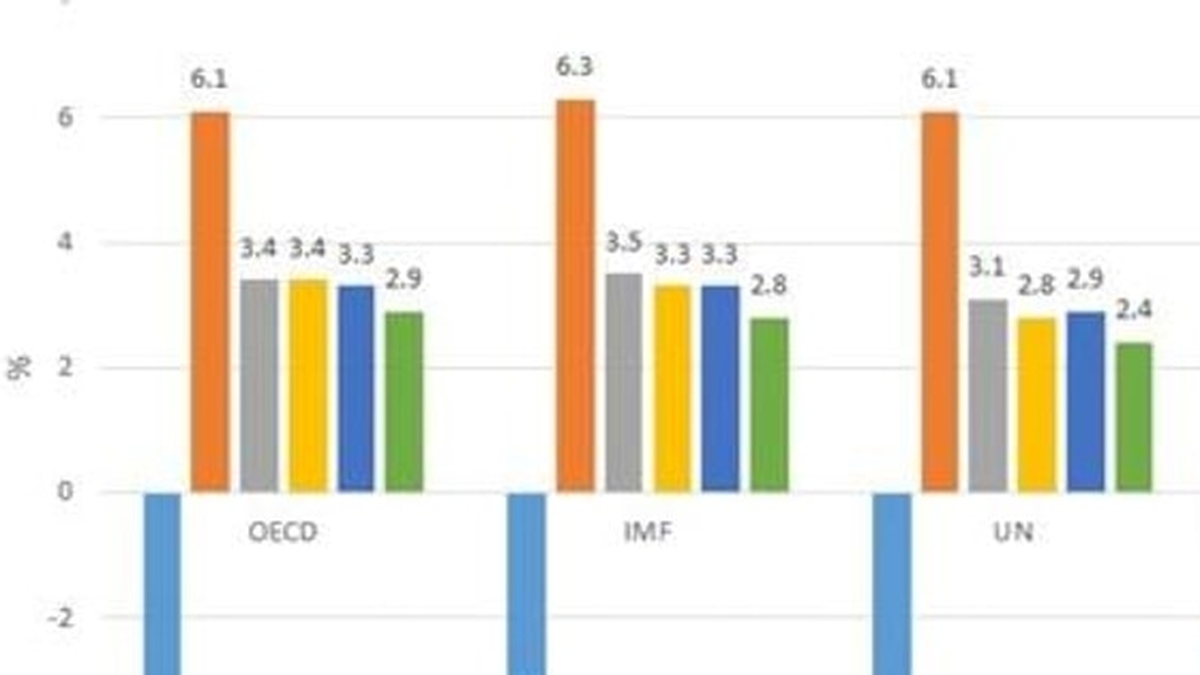

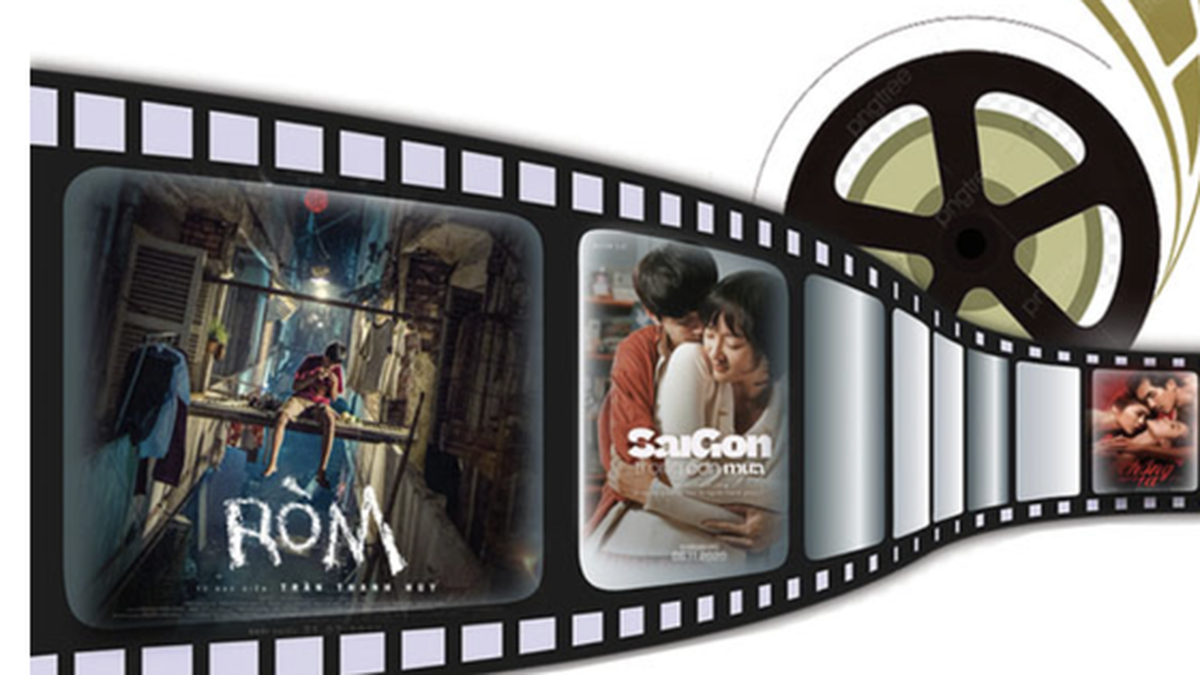
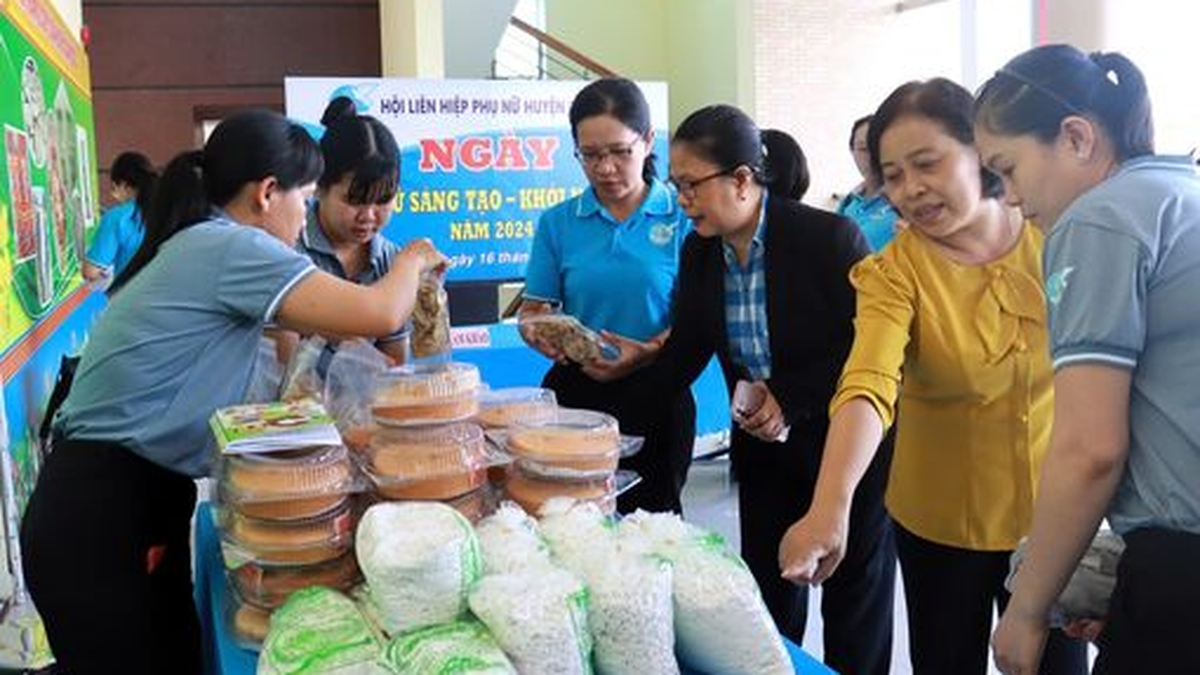
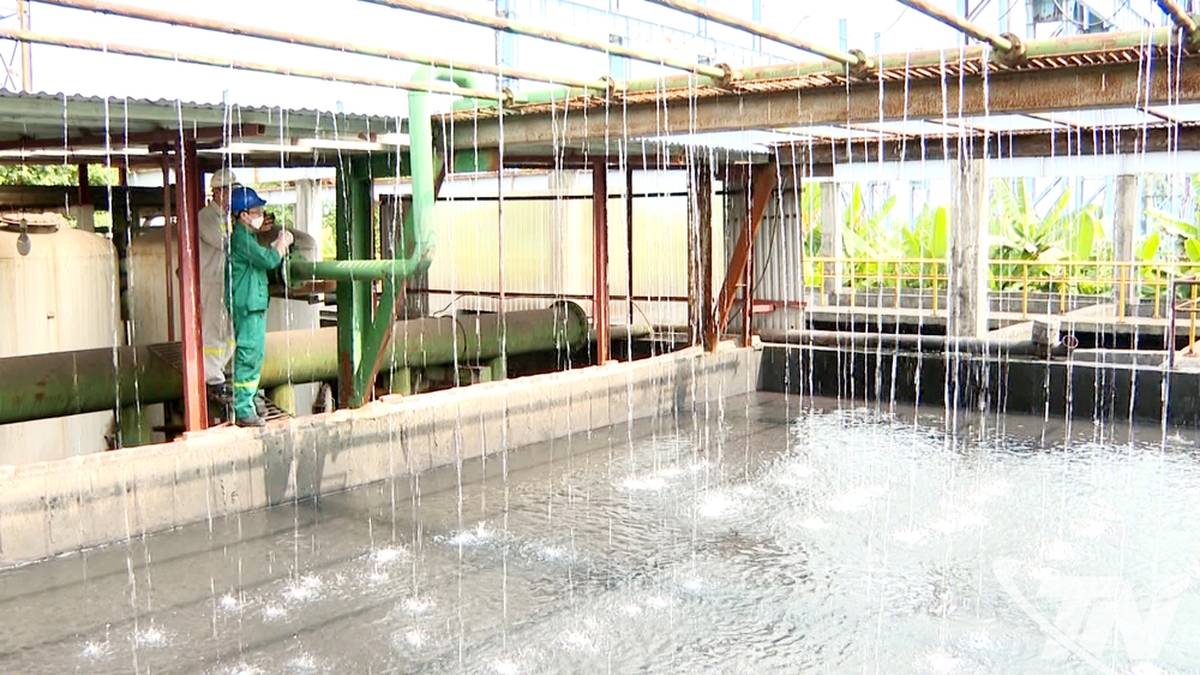
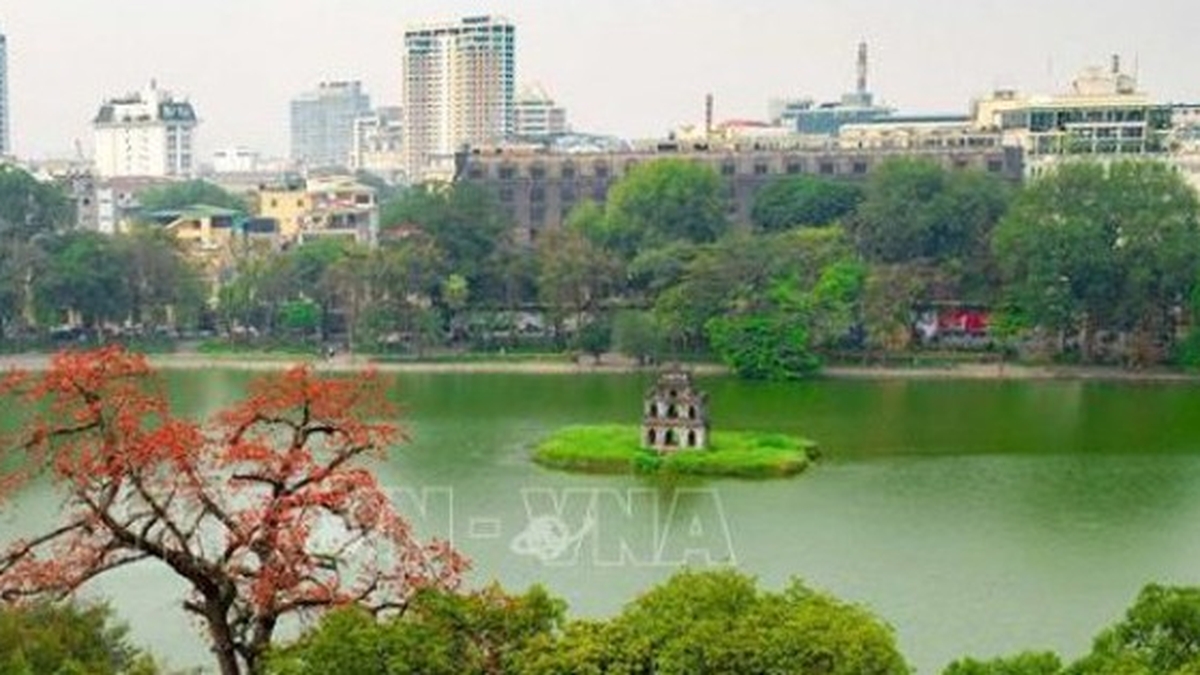

























































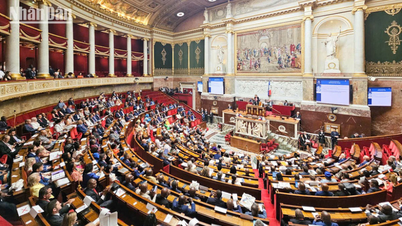





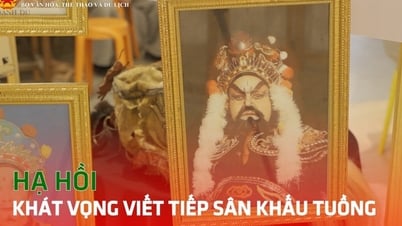
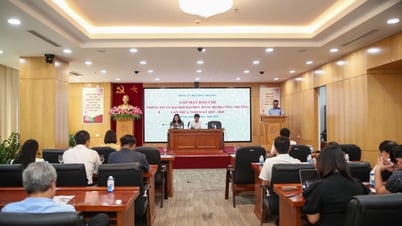

























Comment (0)